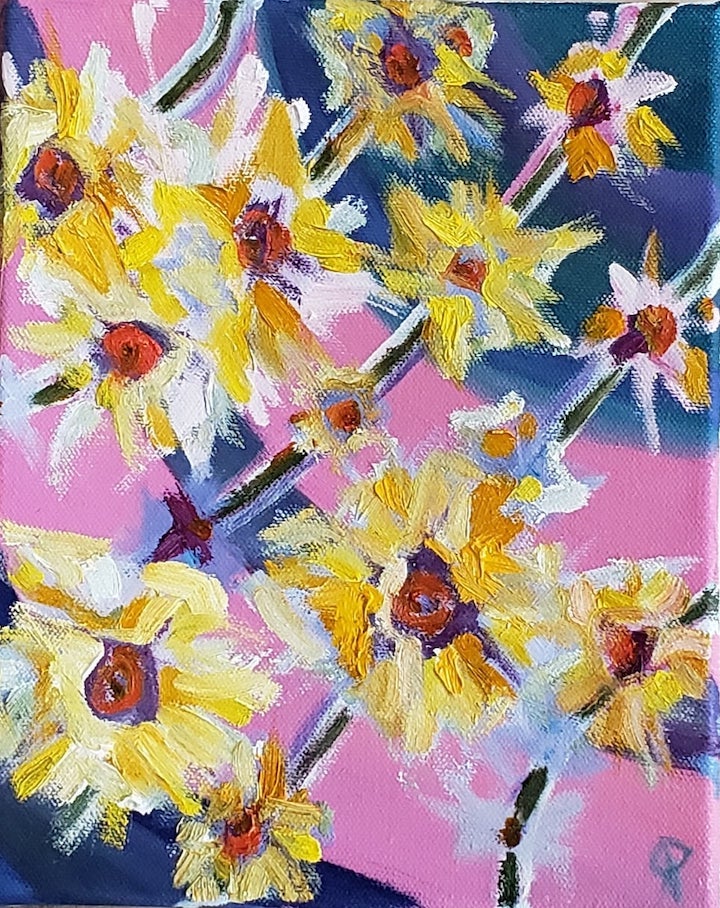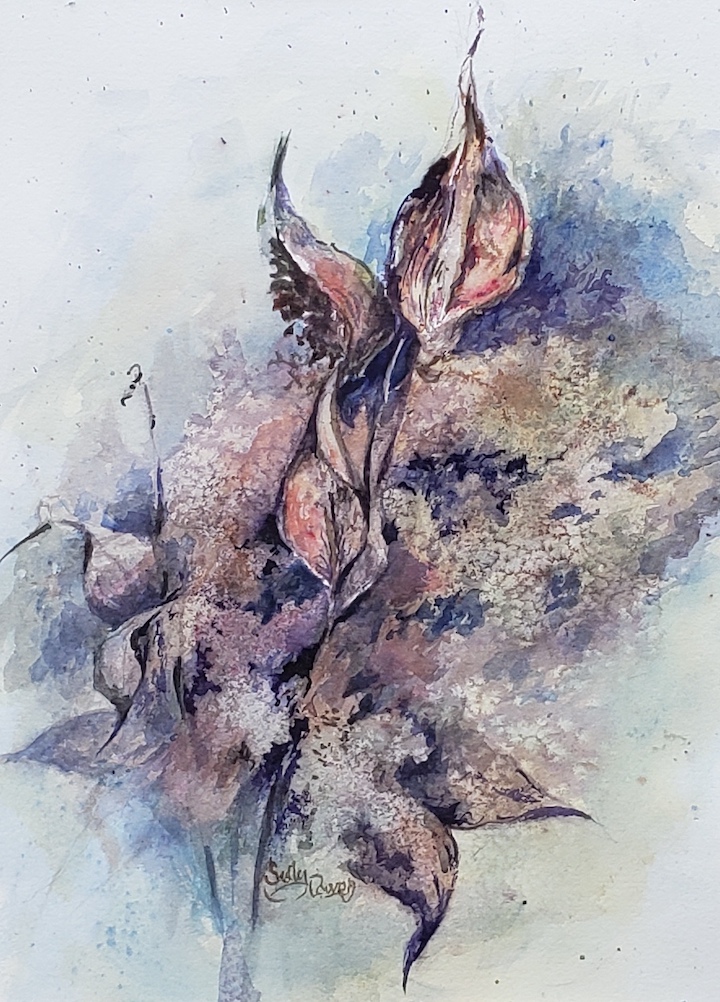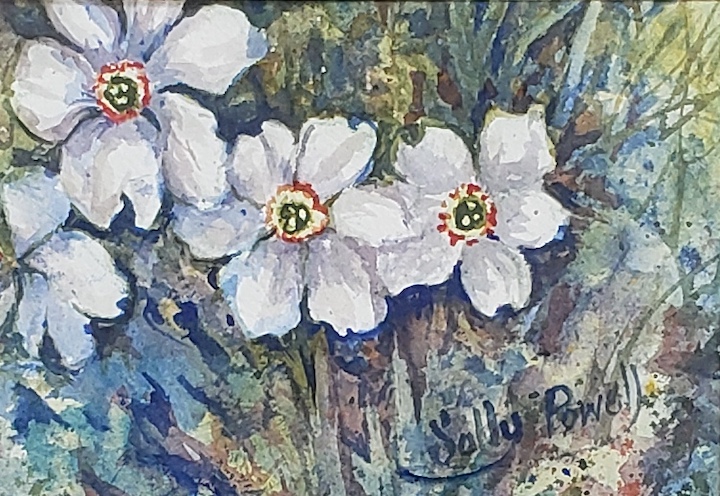I LOVE MY MOTHER. I wish she were dead.
Those are the hardest five words I have ever written. Let me explain.
My 97-year-old mother’s heart still beats, but she is lost to me forever.

We were never that close, true, except when I was young. “Coffee” on the side porch after the older boys had left for school (mine was mostly milk and sugar). Wild blueberries up the hill behind the barn.
She picks the tops of the bushes, I pick the bottoms. Familiar scents of juniper and pine. Dirty sneakers soaked in dew, gradually warmed by sun.
The clear call of a blue jay, buzz of a bumblebee, legs bright with pollen. The steady, soft sound of berries plinking the bottom of our blue-and-white-speckled enamelware cans.
Otherwise: deliciously still.
A schoolteacher, she later introduced me to Old Yeller and The Complete Sherlock Holmes.
OUR DIFFERENCES later in life, though, eventually led to a long period of estrangement. Yet my mother came to live with me when she was 89, and stayed here for more than six years, until she could no longer care for herself, even with my help.
Miraculously, we found Mom a warm, cozy rest home closer to her remaining relatives and the town where she grew up. Less than an hour from here, it is a far cry from home.
The food is good, she says (to me she does not complain), and the staff is caring and friendly. But judging by Mom’s behavior, the constraints of old age and the monotony of her days seem a kind of torment.
She has no major infirmities and she takes no medicine (except for the sedatives she is now prescribed to calm her). But she can’t take care of her basic needs, and she takes little pleasure. Physically, it looks as if she could live forever in this ever-shrinking state.
Whenever I arrive, she is sound asleep in a community room, television blaring. I hate to wake her.
Once I do, our visits are short and bittersweet. She recognizes me and has not been diagnosed with dementia, but her short-term memory is so bad that she often forgets that I have been there hours after I depart. She fails to use (or else loses) her hearing aids, making conversation near impossible, even with me shouting just inches from her ear.
By her own admission, she has a short attention span. She asks me for an apple calendar three times in as many minutes, failing to see the one I brought her in December (in plain view in the basket of her walker), forgetting the second one in her room that I brought in January.
She is always happy to see me. I bring her a jelly donut, knowing her once-strong craving for sweets. She doesn’t notice or care that the jelly dribbles down her blouse.
She repeats the same stories about her youth. She adored her father, who managed a farm of Morgan horses, Jersey cows, and an apple orchard in central Massachusetts. She and my father were married beneath an elm tree in the front yard.
Mom remembers every piece of furniture — even when and where it sat — at her Aunt Rusty’s home near the Hudson, where she spent summers growing up.
After high school, she took the train to Boston early Monday mornings, returning Friday nights, studying art and staying at the “Y” in between.
Interesting as these stories are, I know them by heart, and they are all she has to cling to.
In lieu of conversation, I hold her hand, hug her shoulders, kiss her forehead. She smiles back, a child.
We say we are glad to see each other. We say we love each other. Then I say goodbye.
It’s something, of course. But I feel helpless, muddling through.
IN A WAY, it would be better if Mom did have dementia. Most of the time, she is just aware enough to know what is happening to her, and it makes her increasingly belligerent and angry. Her acting out has gotten so bad that the staff wants to move her to a nursing home. I cannot blame them.
Not surprisingly, they are having trouble finding a place that will take her during the pandemic. If they do, what then?
If Mom is angry now, I can’t imagine what having to move again and being placed in quarantine will do to the remaining shreds of her sanity. And what will the staff do when she refuses their care at the new facility, kicking and screaming? Increase her sedatives? Wrestle her down?
Even before she came to live with me, Mom was ready to die, having long outlived her husband, two sons, and most of her friends. “I don’t know why I’m still here,” she would often say. “I hope I kick the bucket.” She meant it every time.
So on this day, I honor my mother’s life with our two paintings of “Jonquils,” made roughly 50 years apart, and two wildly divergent images of pods.
The paintings illustrate our dramatically different backgrounds and styles. Mom was formally trained at Mass. School of Art; I was not. There were times when I resented her traditional approach. Her realist paintings were technically sound, but I was scornful of their emotional restraint. I always felt as if she were holding something back.
Eventually, though, I came to realize and appreciate that we had more in common than I had cared to admit, especially our love of gardening and nature, frequent subjects in our paintings. And, of course, our love of painting.

During her time living with me, we developed greater respect for each other’s work (although Mom teasingly persisted in describing my painting, “Winter Pods, 3 p.m.,” as “pregnant flamingoes”).
Her world was already shrinking, but she enjoyed watching the birds at the feeders and noting the progress of the gardens. She spoiled Molly, our dog, with treats, and watched passersby on the sidewalk.
She worked at crossword puzzles (another thing we have in common), and Sunday nights, she watched Downton Abbey in silence in bed to Milky Ways and Diet Coke. She watched it again at four in the morning later in the week when she couldn’t sleep.
Mom’s rooms were cluttered, but she always made space for her easel, and she continued to paint into her early 90s. She was generous with her knowledge, passed many of her art supplies on to me, and helped pay for several of my residencies and workshops.
We came full circle, and in the end I’d like to think that we influenced each other just a bit. Here is one of her last paintings, completed around age 92. It is one of my favorites:

I honor the life that was
Less the life that is
So much that my greatest wish
That her passing be painless and swift


Dear Russell, tears are in my eyes as I write this… oh, so touching your words of love and anguish and frustration, but so real, so alive with feeling…thank you for sharing your heart-felt words and visual works; its puts pause in our everyday lives.
My dear cousin, Thanks for the pics, especially those that show and honor your Mom’s great talent. I fortunately have many hanging around my house. Yours too! The virus is helping us learn to accept change, learning and loving in different ways. Deeper. I think of her amazing longevity which “watch out” run in our family. Your comments are like a moving dance. Keep dancing.
Thank you, Jim. It is tough to see Mom in this state, but I am grateful for the memories–and the paintings.
Thank you, Holland.
Hello Russell,
I remember thinking, as I was driving down the hill starting my umpteenth trip to Northampton to care for Mom, “How long is this going to last!?” I mentioned this very thing to Bill this morning, how I regretted that thought. But I didn’t intend it, it just came to me. And it was natural, one of the many ups and downs of the process of letting go. It is so lovely that Sally was able to spend her meaningful last years with you. And now she is entering a kind of childlike state, almost like a toddler in her reactions. Let it be and peace be with you in all of this. You are showing great love. (And I love her last picture of milkweeds!! No surprise there.)
Hugs,
Christine
Thank you, Christine. I do recall your devotion to your Mom. I hope it gives you some solace that you were there for her until the very end. Take care, and keep on painting!!
Dearest Russell,
This beautiful and honest tribute to your mom is gut level honest and yet tender and could only have been written by you. You got it right and captured not only what you feel but also your mom’s frustration and anger as she is trapped in a life she cannot escape. Your writing and the comparison of your paintings bring out another level of knowing each other and another shared but different ways of expressing yourselves. I love this writing. Your courage and honesty is the greatest Mother’s Day tribute I have ever read. Thank you for making the meaning of this day real for me.
Thank you, Jan. This is a wonderful tribute. I am truly humbled.
Dear Russell,
What a poignant piece–one that I will continue to feel throughout the day. So moving and authentic, perhaps a cathartic experience for you to have written this.
I feel fortunate that I got to know both of your parents in Lebanon many years ago and had dinner at their table at least a few times.
Thank you for writing this beautiful piece.
Dear Elena, I, too, am glad that you got to know my parents! Thank you for the warm words. Yes, I think writing the piece was cathartic–it was certainly hard to write. I am glad you liked it.
Beautiful painting.
Big Hugzzzz to you Russell ❤️
Tweety & Woody
Milton Delaware USA
Thank you Thuy! My best to Bob and you.
Lovely and heart felt. I can so relate.. My mom is almost 98 and it is quite a journey communicating and relating.. for her I know as well as for me. Loved the paintings, the commonalities and the differences in style… But mostly loved that the garden has been a place of treasured time for you both alone and together. xxx
Thank you, Diane. Funny how things work out eventually, how gardening and painting brought both my Mom and me great solace. Best wishes for you and your Mom! And I hope you are well. Loved the photos and stories from France!
Hi Russ,
Soaking this in. Sally is quite a force, even as we knew her. I first met her when she moved in at your place. Her love of birds, her feisty new England twinkle. Thank you for writing this compelling story of her life with yours, framed by the art work. It must be so hard to come to the long road to the end, with no end in sight.
Your care and commitment is an honor to her and means the world to her. It is a lot to carry, so telling the story measures the weight of it. I too hope she passes on peacefully, and dread the nursing home move should it happen. Thanks for your wonderful friendship.
J
Kind and thoughtful words, as always. Many thanks.